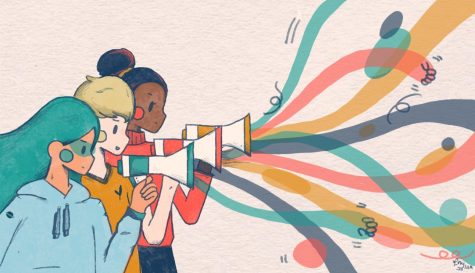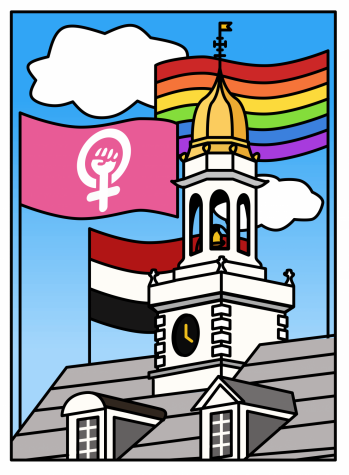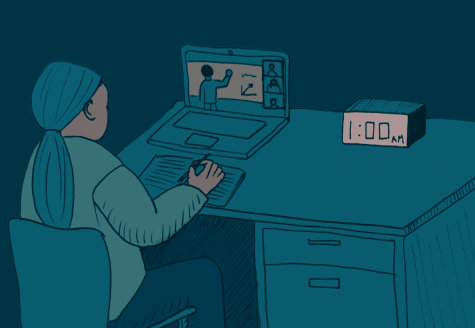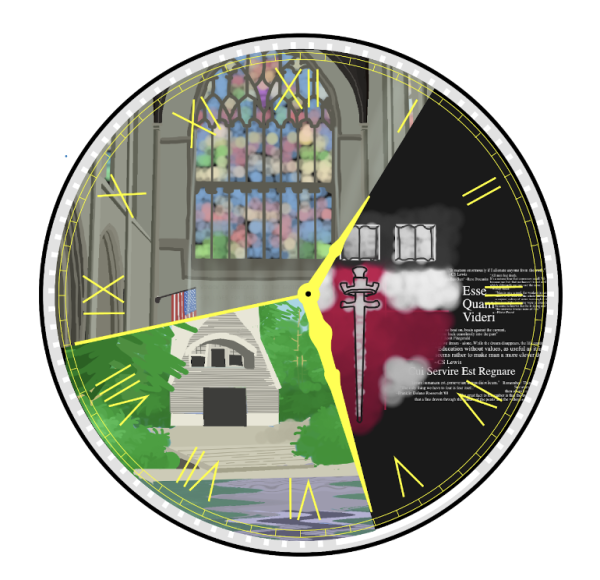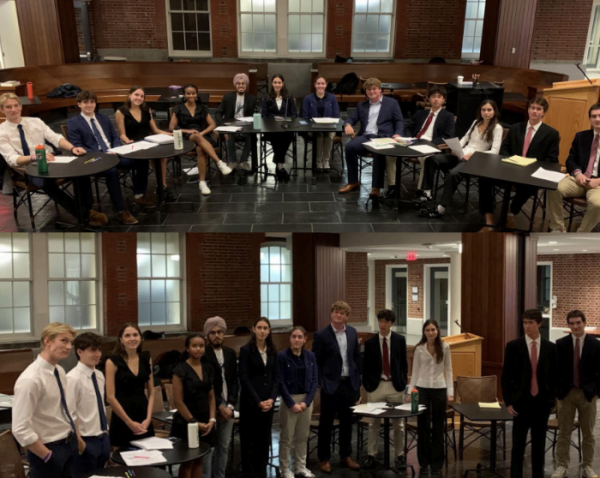Changes, New Courses in the 2018-19 Course Catalog
As one school year draws ever closer to summer break, another hovers in the horizon. For seniors, this means new adventures after Groton. For underformers, this means a brand new load of classes, which they will determine from the new Course Catalog. The 2018-19 Course Catalog marks the arrival of new electives and changes in the teacher or term for others. Perhaps most significantly, the Ethics requirement is changing considerably.
The Ethics requirement will change next year. Rather than a term of Ethics in the sixth form year, students are required to take one course in the Religion/Ethics Department in the Upper School. Sacred Studies, formerly a two-term class for students who arrive after third form, will be replaced with a similar Comparative Religion course (which will not count towards the graduation requirement).
Two new courses will run in the Religion/Ethics Department next year, The Holocaust (ha-Shoah), and Jerusalem: City at the Intersection of Judaism, Christianity, and Islam. Religion/Ethics Department Head David Nelson, who will teach both classes, says that the classes are part of a greater scheme to extend the Religion Department’s offerings in years to come.
Dr. Nelson designed these courses because of his interest in and experience with Jewish Studies, both in his professional and personal life. His course on the Holocaust will run in the fall. He says of the topic, “I consider it a subject that I have both the responsibility to teach and the honor of doing so.” His course on Jerusalem, on the other hand, will be taught in the spring. He notes his past experiences living in the city and its “global and political significance for all citizens of the world” as inspirations for offering the elective. Dr. Nelson says that he and Chaplain Christopher Whiteman, also a member of the Religion/Ethics Department, “are very excited about these changes and new course offerings!”
Current teachers, as well as new ones, are replacing these losses in the Course Catalog with new classes in the Performing Arts, English, Mathematics, Religion, and World Languages Departments. English teacher Peter Fry, currently on sabbatical, will teach an non-departmental art history course. Mr. Fry was an art history major in college and has been contemplating running this elective for several years. He says his sabbatical gave him time to consider the logistics of teaching art history. He hopes to show students “why learning about art history enriches our understanding of humanity itself, as well as of human history.” He also hopes to bring students on field trips to nearby museums.
While Mr. Fry returns from his sabbatical in France, Laurie and her husband Brandt Belknap will depart on their own year abroad. Latin teacher Mary Frances Bannard will run the Public Speaking elective. Laurie explicitly requested that Ms. Bannard take over this class and has given Ms. Bannard her curriculum. Ms. Bannard says that the course will still culminate in Speeches of Conviction and run in the winter and spring. She says she is “eager and excited” to work with students towards achieving “confidence in their own voices and … a deeper appreciation for the power and nuance of communication and language.”
Groton’s sabbatical replacement for Laurie is Andrea Underhill, who works with the Peacock Players in Nashua, NH. Andrea will take over Second Form Theater, which comprises one of the three terms in the second form arts requirement, alongside music and visual arts. Andrea hopes to read, discuss, and act out stories and texts, as well as generally “play with creativity.” Laurie’s acting classes will be moved from fall and winter to winter and spring. In Acting, Andrea hopes to“allow students to find their niche as a performer” through experiences and reflections in pursuit of “deeper understandings of who we are as actors and as people.”
Christopher Wade has signed on for a second year in the English department. He will be offering two new electives based on classes he took in graduate school – The Conspiracy Against the Human Race: Weird Fiction, Horror and the Grotesque in winter term; and Literatures of Solitude and the Social in the spring. He was inspired to teach the former to get students thinking about “some of the voices that are regularly passed over in the English classroom.” Mr. Wade defined weird fiction as a “literary subgenre” which “combines elements of horror, science fiction, mythology and fantasy into new forms that often defy rationality, narrative expectations, and literary borders.” He hopes in the course to elevate the voices of contemporary authors of color and allow students to take a stab at writing their own weird fiction. In Literatures of Solitude and Social, students will analyze characters who “intentionally withdraw themselves (or are forcibly withdrawn) from sociality” and will delve into “socialist critical theory about solitude.”
In the World Languages department, French teacher Rebecca Stanton will offer up to two new electives depending on course signups. For the fall and spring, she has proposed two courses on international news; in the winter, she also hopes to teach a course on North African francophone literature. She says of the former, “I think that it is important for students to be aware of what is happening in the world … [and] for students to have different sources and read controversial views on the same issue to make a more advised and informed opinion on these issues.” The fall installment will be taught in French, while the spring will be open to students studying any language. Her winter elective will read works by French-speaking authors to immerse students in the “style, colors, flavors and culture of another part of the francophone world.”
Next year will bring significant alterations to the curriculum of Advanced Math Topics, a math course typically taken by students who have completed calculus. Math teacher Michael Gnozzio will take over this course, and says he hopes to “to create a series of theoretical computer science courses that will challenge students to explore interesting algorithms in the context of the political, philosophical, and economic questions that they raise.”
Nishad Das will teach a course on cryptography in the spring. Cryptography has previously been taught as part of the Advanced Math Topics course, and Mr. Das is excited to offer it to a wider range of students next year. He describes the course as “a great example of the application of mathematics to the real world,” noting the significant impact of encryption in the two world wars.
Other changes are planned to art elective. Director of Choral Music Daniel Moriarty’s Music Arranging course has been moved from spring to winter. Previously intended to supplement Mary Ann Lanier’s AP Music Theory course, the class will shift focus towards application of skills, offered in winter term so that it might have “a more immediate usefulness to the school ensembles,” Mr. Moriarty notes.
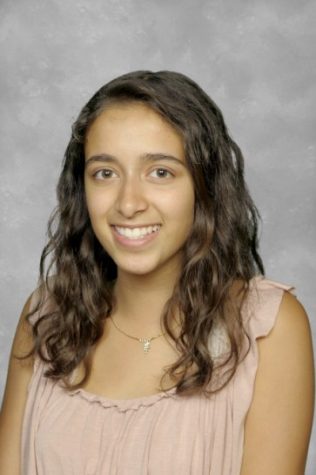
Lily Cratsley '19 is very excited to step into the role of Editor-in-Chief of the Circle Voice. Since fourth form she has been a consistent contributor, writing for...


